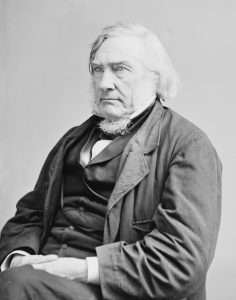
Vice President Kamala Harris has made rebuilding the middle class the top priority of her 2024 presidential campaign. As part of her “Opportunity Economy” agenda, Harris has proposed a suite of middle-class tax breaks, including a $6,000 “new baby tax credit,” a $25,000 tax credit for first-time homebuyers, and a $50,000 startup expense deduction for small business owners.
Economists may argue over the particulars, but there’s no dispute the Harris plan is meant to address the financial worries of young middle-class families. Harris has often discussed how her plan would help pay for a new crib or car seat. Indeed, diapers and formula are shockingly expensive. During the COVID-19 crisis, we saw how monopolization and brittle supply chains left infant formula in short supply and increased prices. But now the entire basket of products babies require—car seats, bottles, cribs, and an infinite supply of onesies (all outgrown within a week)—has become more costly with inflation, as has child care. Harris’s new baby tax credit is a nod to that reality.
Nevertheless, the Harris-Walz agenda tilts heavily toward families just starting out. What’s missing is an equally robust set of ideas for families in midlife or nearing retirement. Gen X needs an opportunity agenda, too.
While Americans in midlife may not need Pampers and nannies for their kids and are, on average, earning more than younger workers, they face a different—and no less urgent—set of financial pressures. Many Gen Xers have taken on the task of caring for aging parents and raising children. The Pew Research Center reports that more than half of Americans in their 40’s are “sandwiched” in this way. Many are anxious about retirement, having lived through the 2008 financial crisis and the Covid recession, which sapped their wealth. One study finds that the typical Gen X household has just $40,000 in retirement savings, far short of what families need to retire comfortably. Some Gen Xers, moreover, may be staring down job worries, thanks to the advent of AI and the ever-accelerating pace of technology. According to one analysis, more than a third of long-term unemployed are workers over 55.
Midlife middle-class households need assurance that they will not lose in their retirement the standard of living they’ve worked hard to achieve. They need help ensuring their parents won’t sacrifice their dignity as they age. They may also need support to reinvent themselves with new skills if they experience an unexpected mid-career disruption. Vice President Harris and Governor Tim Walz should offer these Americans an agenda that meets these concerns.
Here are a few ideas for what an opportunity and security agenda for Gen X could include:
Eldercare tax credit. Households should be allowed to use the Child and Dependent Care Credit to pay for qualified eldercare expenses (an idea I first proposed in 2008).
While the current credit is available for a “dependent of any age,” that dependent must also live with the taxpayer for more than half the year and be “incapable of self-care” – circumstances that often don’t apply to taxpayers with aging parents.
Relaxing the credit’s requirements would help alleviate the burden on adult children who pay out-of-pocket to care for their parents. Taxpayers should, for instance, be allowed to claim home healthcare expenses from certified providers, and the residency requirement should be eliminated.
A federal 401(k) match. The federal government should boost workers’ retirement savings by offering a dollar-for-dollar match on 401(k), 403(b), or IRA contributions, up to a maximum of $2,000 annually.
It’s no secret that Americans aren’t saving enough for retirement, and few members of Gen X have access to the generous pensions the Baby Boomers enjoy. The promise of subsidized savings could encourage more people to save and significantly help workers without access to an employer match.
Medicare “LTC.” Nearly three out of four Americans who reach age 65 will need long-term care at some point in their lives, yet many may be unable to afford it because Medicare doesn’t cover it. Moreover, private long-term care insurance is often expensive and insufficient. For many households, the only option might be to “spend down” to poverty to qualify for Medicaid.
Harris and Walz should at least pledge to explore proposals for Medicare coverage of long-term care. While a detailed plan just a few weeks from Election Day is unrealistic, there is no shortage of scholarship and creative thinking about long-term care reform that deserves serious consideration.
Federal financial aid for Gen X students. Perhaps surprisingly, older students returning to school have few options for financial aid—especially if they’re working and hoping to take a class or two to improve their skills. America’s higher education system still assumes most postsecondary students are full-time students between 18 and 22, even though “nontraditional” students now make up the majority of learners.
Rapid technological change means that most workers will need to retool their skills over their careers. Federal policies should reflect that reality. This could mean ensuring that “free community college” programs include adult learners as well as recent high school graduates; opening the federal student loan program to working students enrolled less than part-time (provided they’re in an accredited program leading to an industry-recognized, in-demand credential); and expanding the federal Pell Grant program to high-quality short-term training programs (“workforce Pell”).
Yes, these ideas would cost money, but Harris also proposes raising the corporate tax rate to 28 percent and partially rolling back the 2017 Trump tax cuts that overwhelmingly favored billionaires like himself. A fairer tax code would help pay for a Gen X opportunity agenda and allow for any tweaks to the ideas proposed above. For example, a federal 401(k) match could be limited to workers earning $75,000 or less, and Medicare long-term care coverage could likewise be scaled to Americans’ financial needs.
Vice President Harris and Governor Walz deserve enormous credit for proposing an economic agenda that speaks to the middle class. As they flesh out their agenda, offering ideas to help their generational peers—Gen X—could prove to be good politics as well as good policy.
The post Idea for Harris: An Opportunity Agenda for Gen X appeared first on Washington Monthly.


 3 months ago
10
3 months ago
10 









 Bengali (Bangladesh) ·
Bengali (Bangladesh) ·  English (United States) ·
English (United States) ·